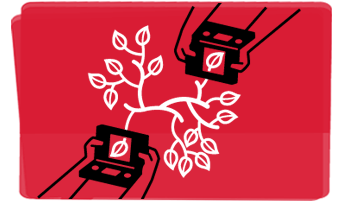What We Do > Rapid Cycle Evaluation
Typically used in the health and human services sector, rapid-cycle evaluations are relatively new in educationa settings. Our rapid cycle evaluations rely on rigorous research design to test and assess both new interventions and changes to existing programs. Stakeholders can have a high degree of confidence in our findings, which may take only a few months to provide. Solid, research-based studies offer evidence of what works—and what doesn't. This allows decision makers to allocate resources in the best way possible, as well as to improve outcomes for target groups.
Here's a sample of our work in rapid cycle evaluation.
As part of the New York City Department of Education's Short-Cycle Evaluation Challenge (SCEC), our iZone project is in the second year of evaluating some 12 new edtech products in public schools. CCT has two main goals for the iZone evaluations.
• First, we want to help schools and edtech developers determine a technology's appropriateness for addressing specific educational objectives and problems of practice, as determined by each school. To that end, our evaluation methods focus primarily on collecting data about how teachers and students use the technology, given their specific school environments—availabilty of hardware, strength of the school's Wi-Fi network, or support from the school administration for implementing new technology. We are interested in understanding a product's ease of uptake, given teacher experience and the nature of the educational objectives.
• Second, we wish to support the NYC DOE's interest in providing teachers and administrators with tools to make good decisions about technology procurement, given a school's particular needs. To achieve that goal, we are drafting and pilot-testing several instruments that teachers can use to help with future decisions about buying and using edtech.
Our evaluation findings will help the schools that are participating in the SCEC to determine whether the edtech products they've pilot-tested will be useful for addressing their needs. Further, we expect that the tools we develop will help schools in New York City and elsewhere make evidence-based decisions about whether to purchase and use edtech products.

![]()


